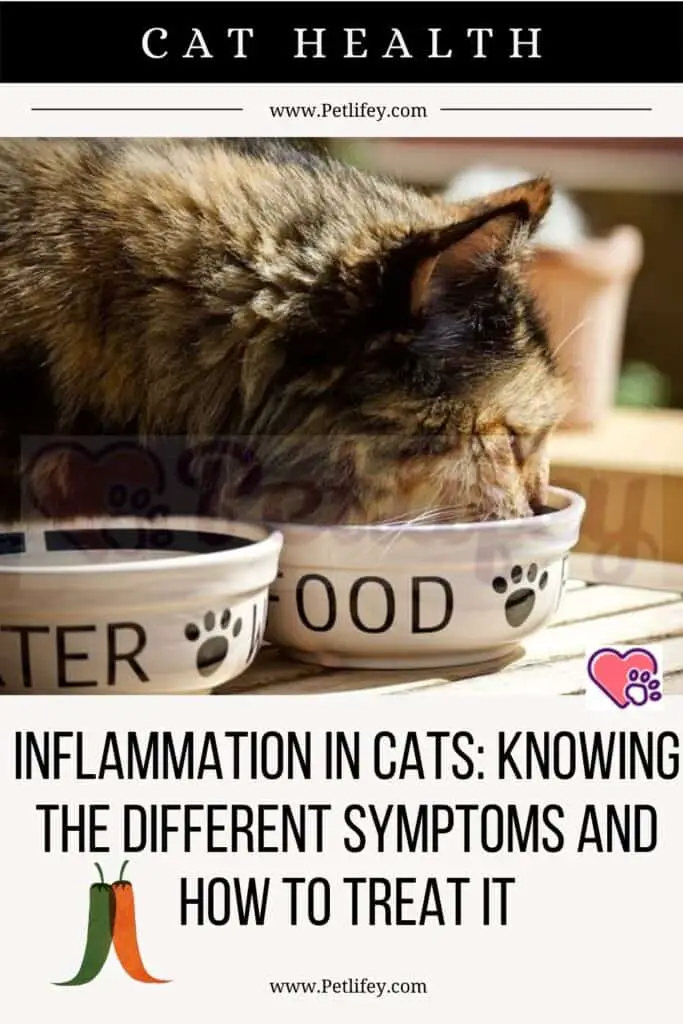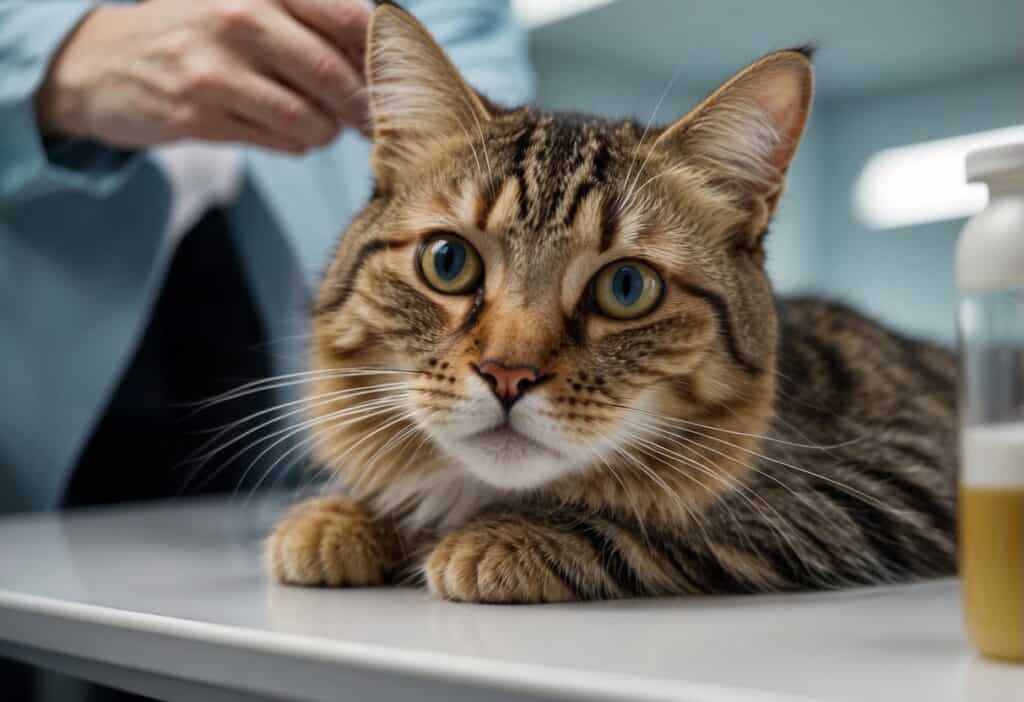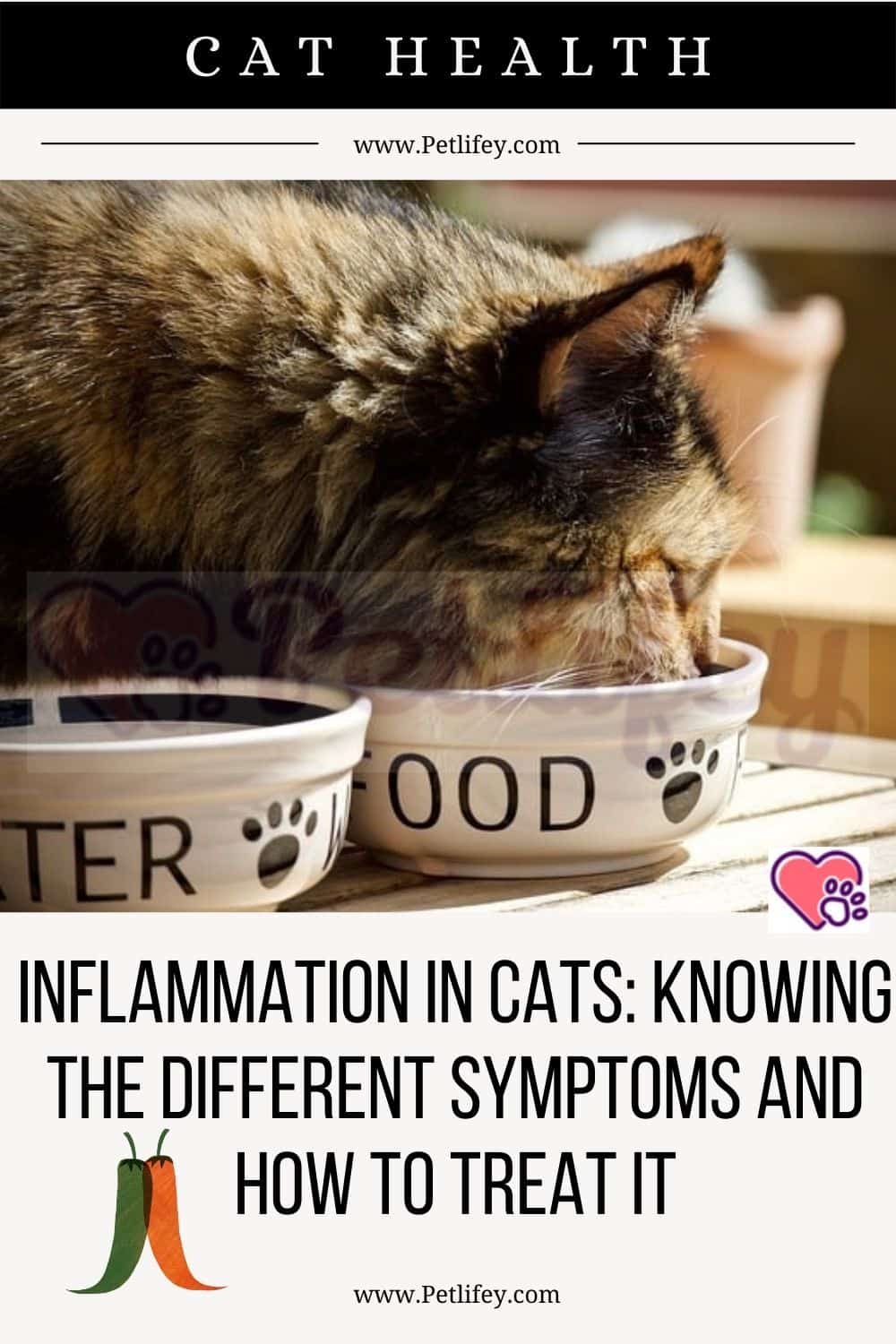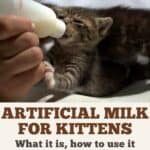Inflammation in Cats: Symptoms, Treatment, and Prevention Strategies

Inflammation is a common response in cats to a variety of ailments, from digestive disorders to skin conditions. As a cat owner, recognizing the signs of inflammation is crucial for ensuring the timely and appropriate treatment of your pet. Symptoms may vary depending on the underlying cause, but common indicators include swelling, redness, heat, pain, or loss of function in a specific area. It is important to observe your cat closely for these signs, as chronic inflammation can lead to more serious health issues.
Treatment for inflammation in cats often requires veterinary attention. Your veterinarian will determine the root cause of the inflammation and may prescribe medications such as anti-inflammatories or antibiotics. In cases of inflammatory bowel disease (IBD), for example, treatments can range from dietary changes to more targeted therapies. It is imperative to follow the treatment plan as directed and maintain open communication with your vet for the best outcomes for your cat’s health.
Managing your cat’s inflammation involves a multi-faceted approach that includes monitoring for symptoms and adhering to veterinary guidance. By staying alert to the signs of inflammation and responding promptly, you can help maintain your cat’s well-being and quality of life. Remember that each cat is unique, and what works for one may not be suitable for another; therefore, personalized care from a professional is invaluable in managing inflammatory conditions.
Understanding Inflammation in Cats
Inflammation is a crucial response by your cat’s immune system to protect and heal the body, but chronic inflammation can lead to various health problems. Understanding the types and effects of inflammation is essential for maintaining your cat’s health.
Defining Inflammation and Its Impact on Feline Health
Inflammation is your cat’s immune system’s natural response to infection, injury, or foreign substances. It involves inflammatory cells that rush to the affected site to eliminate the cause and promote healing. However, when inflammation becomes chronic, it can negatively impact your cat’s health. Chronic inflammation may lead to conditions like inflammatory bowel disease (IBD), which disrupts the gastrointestinal (GI) system’s functions.
Common Types of Inflammation in Cats
There are several common types of inflammation that can affect cats, including:
- Gastrointestinal: Conditions like IBD, gastritis, enteritis, and colitis are types of inflammation affecting different parts of the GI tract. Signs can include diarrhea, weight loss, vomiting, and abdominal pain.
- Skin Inflammation: Manifesting as redness, swelling, or itching, skin inflammation can result from allergies, infections, or injuries.
- Pancreatitis: This is inflammation of the pancreas, which can interfere with digestion and insulin production, leading to appetite loss and weight changes.
Be sure to consult with a veterinarian if you suspect your cat has any form of inflammation. Early detection and treatment are critical for managing these conditions and ensuring the well-being of your feline friend.
Recognizing Symptoms and Diagnosis

When your cat is facing inflammation, recognizing the symptoms early can make a significant difference in diagnosis and treatment effectiveness.
Identifying Symptoms of Inflammation
Inflammation presents various symptoms that you may notice in your cat. Common symptoms to look out for include:
- Persistent Itching or Scratching: Your cat might excessively scratch or chew at their skin.
- Hair Loss: Look for patches of hair loss, which can be due to your cat’s incessant scratching or chewing.
- Visible Bumps or Lesions: These can appear on the head, neck, back, or other areas.
- Swelling or Redness: You might notice red, swollen, or hardened patches of skin.
- Decreased Appetite: Inflammation can lead to a reluctance to eat.
- Vomiting, Diarrhea, Flatulence: Gastrointestinal issues are common and could be a sign of internal inflammation.
- Lethargy or Fatigue: If your cat shows a lack of energy or enthusiasm, it could be a symptom.
- Abdominal Pain: Your cat may be hunched over or react negatively to abdominal palpation.
Diagnostic Techniques for Inflammation
Diagnosis typically involves a combination of a thorough physical examination and history taking to establish potential causes and narrow down the disorders.
- Blood Tests: These can reveal increases in white blood cells, which is a sign of inflammation or infection.
- Ultrasound: An abdominal ultrasound may be performed to visualize organs and check for any irregularities in the small intestine or other abdominal structures.
- Endoscopy: To directly observe the interior of the stomach and intestines and potentially take tissue biopsies.
- Biopsy: Obtaining a tissue sample is essential for a definitive diagnosis, particularly in cases where chronic inflammation is suspected, or cancer must be ruled out.
By being attentive to symptoms and promptly consulting a veterinarian who can employ these diagnostic techniques, you can ensure that your cat receives the best care possible for inflammation-related conditions.
Common Causes of Feline Inflammation
Inflammation in cats can be a sign of underlying health issues. Understanding the causes of inflammation is crucial for effective treatment and improving your cat’s quality of life.
Infections and Parasitic Causes
Your cat’s gastrointestinal inflammation can often be traced back to infections caused by bacteria or parasites. Common parasitic causes include roundworms, hookworms, and protozoa such as Giardia. Bacterial infections might arise due to the overgrowth of harmful bacteria in the gastrointestinal tract, sometimes leading to conditions like inflammatory bowel disease (IBD).
Food Allergies and Intolerance
Adverse reactions to food constitute significant causes of inflammation. Food allergies can develop from proteins that your cat’s immune system mistakenly identifies as harmful. Besides allergies, food intolerance is a non-immune response to certain components in your cat’s diet, such as lactose or certain food additives and preservatives. Both of these can lead to chronic inflammation and symptoms like vomiting and diarrhea.
Internal Diseases and Disorders
Chronic diseases such as liver issues, diabetes, pancreatitis, and hyperthyroidism can all cause inflammation in cats. Conditions like IBD can progress and potentially lead to more severe complications like cancer if not properly managed. Proper nutrition and management of underlying conditions are essential for controlling inflammation related to these diseases.
Treatment Options and Management
When your cat is diagnosed with inflammation, such as inflammatory bowel disease (IBD), it’s crucial to understand the variety of treatment options available. The right combination of pharmaceuticals, dietary adjustments, and supportive therapies can significantly improve your cat’s quality of life.
Pharmaceutical Interventions
The use of medications is common in managing feline inflammation. Corticosteroids such as prednisolone are frequently prescribed to reduce inflammation. In cases where corticosteroids are insufficient, immunosuppressive drugs such as chlorambucil or azathioprine may be used. For infections, antibiotics like metronidazole are effective, while anti-inflammatory drugs are helpful to alleviate discomfort. Always follow your veterinarian’s dosage instructions to ensure safety and effectiveness.
- Steroids: Reduce inflammation; commonly used steroids include prednisolone.
- Immunosuppressive Drugs: For severe cases; drugs like chlorambucil can be prescribed.
- Antibiotics: Treat underlying infections; metronidazole is one example.
Dietary Change and Nutritional Management
A change in diet can have a profound effect on managing inflammation in cats. The introduction of a high-quality and easily digestible diet reduces the workload on the digestive system. Include probiotics or prebiotics to support gut health; in addition, vitamin B12 and folate supplements may be necessary if your cat has deficiencies. Monitor your cat’s appetite and response to the new diet and adjust as recommended by your veterinarian.
- Probiotics/Prebiotics: Support gut health.
- Vitamin B12/Folate: Supplement if required.
- Diet: High-quality, easily digestible foods.
Holistic and Supportive Therapies
In addition to traditional treatments, consider holistic approaches and supportive therapies. These may include acupuncture or chiropractic care to alleviate pain and improve mobility. Ensure your cat’s comfort with a warm, quiet rest area, and if appetite is an issue, try enticing with small amounts of favorite treats. Always consult with your veterinarian on the best holistic and supportive therapies for your cat’s specific condition.
- Acupuncture/Chiropractic Care: May relieve pain and improve comfort.
- Comfort: A warm, quiet rest area.
- Treats: To encourage appetite if needed.
Keep in close communication with your veterinarian about the prognosis and any adjustments in treatment to maintain the best quality of life for your cat.
Prevention and Long-Term Care
Caring for your cat involves being proactive about preventing chronic inflammation and ensuring their comfort, especially as they move into their middle-aged years. Attention to their environment, regular check-ups, and an understanding of potential complications are paramount to their health and well-being.
Managing Environmental Factors
Your cat’s environment plays a significant role in preventing chronic inflammation. Consider the following:
- Allergens: Regularly clean and vacuum to minimize potential allergens that could contribute to inflammation.
- Safe Spaces: Provide comfortable areas for your cat to rest, away from high traffic and noisy environments.
- Diet: Ensure a balanced diet and avoid foods that are known to cause sensitivities in your cat.
Routine Veterinary Care
Establishing and adhering to a routine of veterinary care is essential:
- Check-ups: Schedule regular check-ups with your veterinarian, especially as your cat becomes middle-aged.
- Vaccinations: Keep vaccinations up to date to prevent illnesses that could lead to inflammation.
- Early Detection: Discuss with your veterinarian the symptoms of inflammation so that you can spot any issues early.
Potential Complications and Prognosis
Be aware of the potential complications that can arise from chronic inflammation:
- Secondary Conditions: Untreated inflammation can lead to more serious conditions such as inflammatory bowel disease.
- Quality of Life: Chronic inflammation can impact your cat’s comfort and quality of life significantly.
- Prognosis: While some inflammatory conditions can be managed with proper care, the prognosis may vary. Discuss potential outcomes with your veterinarian.
Special Considerations for Affected Cats
In managing inflammation in cats, it’s pivotal to address associated diseases and make necessary adjustments to your cat’s daily routine to ensure their well-being and comfort.
Dealing with Concurrent Feline Diseases
When your cat suffers from inflammation, this can often coincide with other health concerns. For example, Inflammatory Bowel Disease (IBD) can exist alongside diseases such as lymphoma. It’s important to closely monitor your cat for other symptoms that may indicate additional health issues. Regular veterinary check-ups are crucial, as diseases like enteritis or skin problems that can further exacerbate inflammation, need timely intervention.
- Lymphoma: Seek regular veterinary screenings for early detection.
- Enteritis: Watch for persistent digestive issues like diarrhea.
Behavioral and Lifestyle Adjustments
Your cat’s quality of life is paramount, and making their environment as comfortable as possible should be a priority.
- Fur and Skin: Maintain a grooming routine to keep their fur clean, which can help in preventing skin irritations that compound inflammation.
- Irritants: Reduce your cat’s exposure to known irritants in their environment, such as certain bedding materials or household cleaners, which can affect their skin and fur.
- Bacterial Populations: Consider a diet that supports healthy gut bacteria to mitigate bacterial imbalances that may contribute to inflammation.
- Comfortable Environment: Ensure your cat has a quiet, stress-free area to rest, as stress can negatively impact their immune response and healing process.
By focusing on these specific considerations, you can play a significant role in managing your cat’s inflammation and associated conditions.
Conclusion
In managing inflammation in cats, early detection and intervention can make a significant difference in your pet’s health and quality of life. Be vigilant for symptoms such as decreased appetite, lethargy, vomiting, diarrhea, abdominal pain, or swelling. These may be indicators of an underlying inflammatory condition.
Upon identifying signs of inflammation:
- Consult Your Veterinarian: Prompt professional assessment is crucial.
- Follow Treatment Plans: Adherence to prescribed medications and diet changes is essential for recovery.
- Monitor Health: Keep a close eye on any changes in your cat’s symptoms or behavior.
Remember that while inflammation can present challenges, numerous treatment options are available. With your attentive care and professional veterinary guidance, your cat can enjoy a comfortable and happy life.







